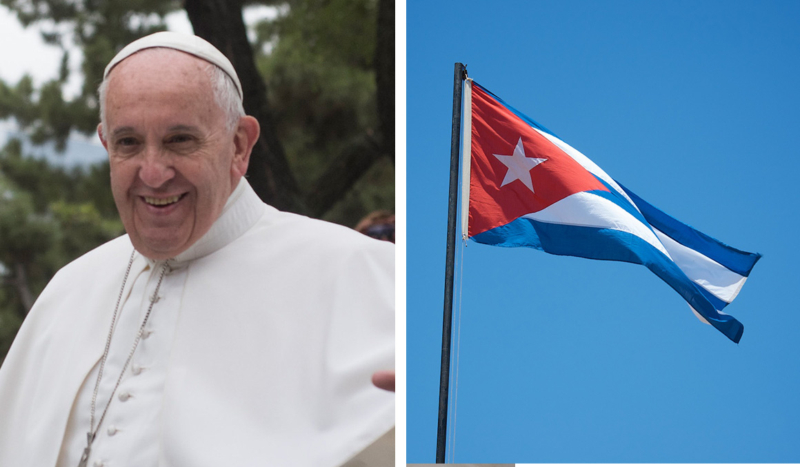
US Papal Visit / Flickr (left), digideon / Flickr (Right)
CV NEWS FEED // Independent Cuban media reporting suggests that Pope Francis may have played a significant role in influencing President Joe Biden’s recent changes to Cuba’s status on the State Sponsors of Terrorism list.
On Jan. 14, Biden announced Cuba’s removal from the list, reversing a decision made just a month earlier when the designation was reaffirmed, according to a Havana Times translation of an El Toque op-ed.
El Toque reported that in early January, Cuban President Miguel Diaz-Canel communicated with Pope Francis, telling him about his “decision to grant freedom to 553 individuals sentenced for various offenses.”
“In Washington,” Havana Times translated, “it is claimed that President Biden’s decision was made after learning of this message from the Communist Party via Pope Francis.”
According to El Toque, Biden’s recent shift in policy stemmed from his communication with the Pope, surprising even Secretary of State Antony Blinken, who had assured lawmakers that no changes were expected before Biden’s term ended.
Explaining the potential implications of this decision, Havana Times translated El Toque’s observation.
“The chain reaction set off by Diaz-Canel’s letter to Pope Francis in early January seems coincidental, considering Biden’s decision can be reversed in less than a week once Trump is inaugurated,” Havana Times translated. “Yet political reality suggests the Cuban regime has gained time — a resource it lacked until now.”
Negotiations between Cuba and the U.S. have faced obstacles over the past four years, with Biden insisting on the release of political prisoners before easing sanctions, and the Cuban government resisting these demands.
U.S. officials submitted lists of high-profile prisoners detained by the Cuban government, acknowledging that not all may be released. According to El Toque, should Trump reinstate Cuba on the terrorism sponsor list or impose sanctions on the communist country, Cuba might choose to exclude political prisoners from those released, effectively keeping them as “hostages,” and therefore maintain significant political leverage over the new administration.
Alongside this announcement, Biden extended the waiver suspending Title III of the Helms-Burton Act, which allows U.S. citizens to file lawsuits against foreign companies using property in Cuba that was confiscated by the Cuban government after the 1959 revolution.
Biden also revoked a list that prohibited certain Cuban entities from U.S. business dealings, a move established during the Trump administration.

